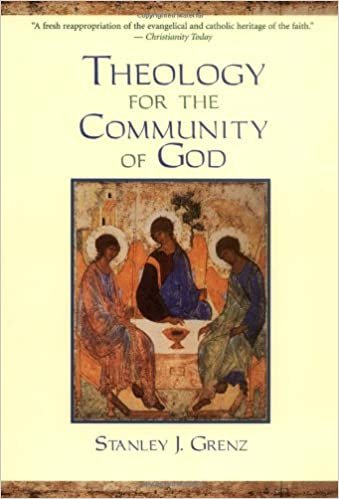
I picked up Theology for the Community of God not fully realizing how massive it is (659 pages). Years ago I heard Michael Hidalgo preach that “children of wrath” (Ephesians 2:3) can also translate, “wrathful children.” My own examination of Greek grammar led me to the same conclusion. However, I know that I only know enough Greek to be dangerous. I needed confirmation by an academic I could cite in my post, Light Up the Darkness. Google led me to this book. Since I appreciate Grenz and the title sparked my curiosity, I bought it and devoured most of it.
How I Read Theology for the Community of God
I am not an Evangelical. Therefore, when reading an Evangelical systematic theology text, I will frequently disagree with the theological conclusions. That is true with this text. As I progressed, I found myself taking fewer notes, underlining fewer passages, and ultimately skimming or just reading headings. That is expected. Systematic texts build from one chapter to the next. A small deviation in chapter one is massive by the time you reach chapter 24.
However, Grenz’ use of an eschatological community as an integrative theological motif to develop a systematic theology is absolute brilliance. It forces theology to move from the theoretical to the applicable by demanding it focus on divine activity throughout history. Even though I disagree with Grenz’ conclusions, his process proved immensely helpful. My own theological perspective is both deeper and richer because I took a parallel journey.
A Few Highlights
- Knowing God as subject reframes epistemology when it comes to God. Knowledge about God is rooted in being known.
- The exploration of the Trinity with love as the essence of the divine is masterful. It led to the thoughts on community I first expressed in the second issue of the Abundance Reconstructed Newsletter.
- Seeing God as the power of the future adds new depth to my understanding of Genesis 1. The creative act is about bringing order and function to everything at the telos. This stands in stark contrast to the typical approach of God standing at the beginning.
- Part of the divine image means that humanity has no niche in the world and instead we have to find meaning beyond daily existence. This explains why we live the way we do both in the void and the divine presence.